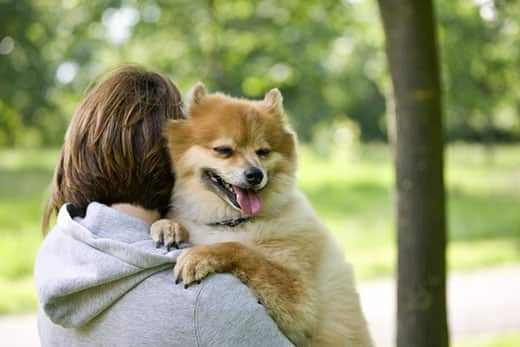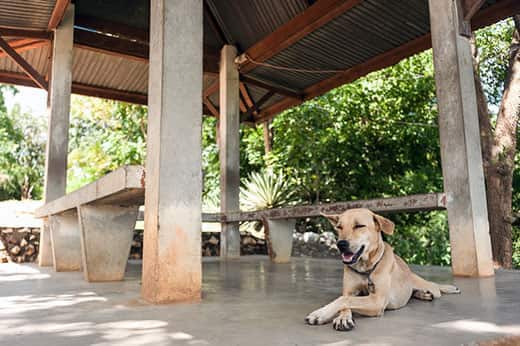
-
Find the right food for your pet
Take this quiz to see which food may be the best for your furry friend.
Find the right food for your pet
Take this quiz to see which food may be the best for your furry friend.
Featured products
 Adult 7+ No Corn, Wheat, Soy Chicken & Brown Rice Dog Food
Adult 7+ No Corn, Wheat, Soy Chicken & Brown Rice Dog FoodSupports energy level and beautiful coat in mature dogs
Shop Now Adult 7+ Perfect Digestion Chicken, Whole Oats & Brown Rice Recipe Dog Food
Adult 7+ Perfect Digestion Chicken, Whole Oats & Brown Rice Recipe Dog FoodScience Diet's breakthrough nutrition supports ultimate digestive well-being & healthy microbiome for dogs age 7+
Shop Now Adult Perfect Weight & Joint Support Chicken Recipe Dry Dog Food
Adult Perfect Weight & Joint Support Chicken Recipe Dry Dog FoodThis weight management and mobility support dog food was created with Hill’s unique understanding of the biology of overweight dogs.
Shop NowFeatured products
 Adult Savory Chicken Entrée Cat Food
Adult Savory Chicken Entrée Cat FoodPrecisely balanced nutrition with the delicious taste of savory minced chicken to help fuel the energy needs of cats during the prime of their life
Shop Now Perfect Weight Salmon & Vegetable Canned Cat Food
Perfect Weight Salmon & Vegetable Canned Cat FoodOver 70% of cats lost weight within 10 weeks when fed this nutrition
Shop Now Adult Perfect Digestion Chicken, Barley & Whole Oats Recipe Cat Food
Adult Perfect Digestion Chicken, Barley & Whole Oats Recipe Cat FoodScience Diet's breakthrough nutrition supports ultimate digestive well-being & healthy microbiome
Shop Now -
Dog
- Dog Tips & Articles
-
Health Category
- Weight
- Food & Environmental Sensitivities
- Urinary
- Digestive
- Joint
- Kidney
-
Life Stage
- Puppy Nutrition
- Adult Nutrition
- Senior Nutrition
Cat
- Cat Tips & Articles
-
Health Category
- Weight
- Skin & Food Sensitivities
- Urinary
- Digestive
- Kidney
-
Life Stage
- Kitten Nutrition
- Adult Nutrition
Featured articles
 Water
WaterDiscover why water is the most important nutrient for your dog or cat to live a healthy life. Find out how much water your pet should consume each day.
Read More The Incredible Science Behind Your Pet's Microbiome
The Incredible Science Behind Your Pet's MicrobiomeLearn what a pet's microbiome is, how it contributes to your pet's gut & overall health, and why nutrition is important in maintaining healthy microbiomes.
Read More Pet Food Storage Tips
Pet Food Storage TipsDiscover how and where to store your dry, as well as canned, dog and cat food. Learn how to find the "best before" dates on all Hill's pet food packaging.
Read More -
Find the right food for your pet
Find the right food for your pet


Have you ever wondered if dogs sweat? You might've heard that dogs cool off by panting, but does that mean they never sweat? Read on to get the facts about dog sweat and its role in keeping dogs cool.
Do Dogs Sweat Like Humans?

Dogs sweat, but they sweat a bit differently than humans.
Dogs have two types of sweat glands: merocrine glands, which are similar to human sweat glands, and apocrine glands. Merocrine glands are located in dogs' paw pads. Sweating through their paws helps dogs cool down. The apocrine glands, located throughout your dog's body, also make dog sweat — but this type of sweat doesn't cool your pup down. Instead, according to the American Kennel Club, the sweat from apocrine glands contains scent pheromones that help dogs identify each other.
How Else Do Dogs Stay Cool?
While sweating through their paws helps your dog cool down a little, the primary way they lower their body temperature is through panting.
Here's how it works: When a dog pants, the evaporating moisture on their tongue combined with the evaporation of the moist lining of their lungs cools them down, says Psychology Today. This is similar to the way evaporating sweat on the human body helps humans cool down.
There's one more way dogs are able to regulate their body temperatures, called vasodilation. During this process, a dog's blood vessels expand, bringing hot blood closer to the skin's surface and letting it cool down. This cooler blood then flows back to the heart, bringing the dog's overall temperature down.
Can Dogs Sweat Too Much?
People who are prone to excessive sweating, even when they're in a cool environment, have a condition called hyperhidrosis. It's unclear if dogs experience the same thing. However, dogs do sometimes sweat a lot through their paws when they're stressed, says PetHelpful. While no one's certain why this happens, it's believed that the excess moisture provides better traction on some surfaces, helping dogs run away from the source of their stress. This stress-induced sweating generally clears up once the stressful situation passes.
If you notice your dog's paw pads producing a lot of moisture, ask your veterinarian about possible causes and ways to help your sweaty pup stress less.


Tasty Tips
Recognizing an Overheated Dog

While dogs have mechanisms to cool themselves down, they aren't always the most effective, making them prone to overheating in hot weather. Heat exhaustion in dogs can quickly escalate to a life-threatening heat stroke if it isn't dealt with immediately.
The AKC says to watch out for the following signs of your dog overheating:
- Heavy or rapid panting
- Excessive drooling
- Lack of coordination
- Red gums
- Rapid or irregular heart rate
- Muscle tremors or seizure
- Feeling warm to the touch
- Loss of consciousness
If your dog shows any of the above signs, immediately move them into an air-conditioned space or to a shaded area and offer them water to drink. To prevent your dog from getting overheated in the first place, limit their physical activity in hot weather, keep them in the shade and provide them with plenty of water. It's also crucial to never leave your dog trapped in a hot environment, such as a parked car. Being a loving and responsible pet parent includes keeping your cool pooch from becoming a hot dog.


Jean Marie Bauhaus is a pet parent, pet blogger, and novelist from Tulsa, Oklahoma, where she usually writes under the supervision of a lapful of fur babies.
Related products

Supports energy level and beautiful coat in mature dogs

Science Diet's breakthrough nutrition supports ultimate digestive well-being & healthy microbiome for dogs age 7+

This weight management and mobility support dog food was created with Hill’s unique understanding of the biology of overweight dogs.

Delicious braised beef paired with tender vegetables in a succulent stew
Related articles

Large and giant breed puppies have different nutritional needs than other dogs. Learn how to provide the special care they need to grow up big and strong.

Proper nutrition for your pregnant or nursing dog is vital to her and her puppy's health. Learn what you should do provide her with the proper nutrients.

Understand the role that Omega-6 and Omega-3 fatty acids play in your dog's overall health, and how you can ensure they are getting enough.

Learn about Hill's puppy food and the nutritional benefit & high quality ingredients that it contains for your pup.

Put your dog on a diet without them knowing
Our low calorie formula helps you control your dog's weight. It's packed with high-quality protein for building lean muscles, and made with purposeful ingredients for a flavorful, nutritious meal. Clinically proven antioxidants, Vitamin C+E, help promote a healthy immune system.
Put your dog on a diet without them knowing
Our low calorie formula helps you control your dog's weight. It's packed with high-quality protein for building lean muscles, and made with purposeful ingredients for a flavorful, nutritious meal. Clinically proven antioxidants, Vitamin C+E, help promote a healthy immune system.

